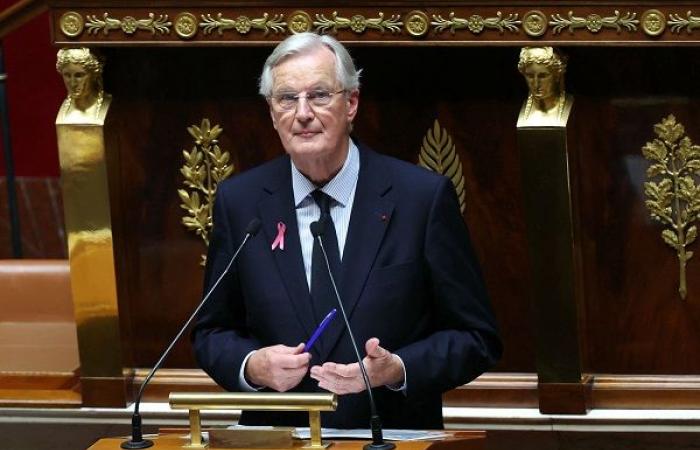Presented more than a week behind the usual schedule, the draft budget plans to achieve two thirds of the expected effort, or some 40 billion euros, thanks to spending reductions, and the last third through the leverage taxes and duties, for a volume of nearly 20 billion euros.
“We are going to ask the French for an effort of 60 billion euros, I want this effort to be fair and equitably distributed,” declared Prime Minister Michel Barnier ahead of the presentation of the project.
He recognizes, however, that “it is a perfectible budget” that he had to construct “in two weeks”, while the legislative elections resulted in a heterogeneous National Assembly at the beginning of July, an unprecedented situation which delayed the appointment of his government.
Among the flagship measures of the budgetary texts, presented to the Council of Ministers, is an “exceptional” contribution on high incomes which should be applied over the next three years with the ambition of having a return of 2 billion euros in 2025.
Large companies with a turnover exceeding one billion euros would have to pay an exceptional supplement on their profits.
The budgetary texts also provide for the elimination of 4,030 teaching positions for the year 2025, as well as an increase in the tax on electricity, known as TICFE, beyond its level before the tariff shield implemented. place between 2022 and 2024, towards “a range around 50 euros per MWh”, compared to 32.44 euros before the crisis.
The government is also considering lowering the ceiling used to calculate daily allowances for sick leave, in addition to toughening the automobile penalty, which penalizes the purchase of cars that emit the most greenhouse gases. , while employer contributions should be increased by 4 billion euros next year.
Before the presentation of the finance bill, the president of the High Council of Public Finances, Pierre Moscovici, warned that the forecasts of the new French government “remain a little optimistic”, in reference to its intention to reduce the public deficit by 6 .1% of GDP (expected this year) to 5% from 2025, before returning below 3% in 2029, the limit imposed by European rules.
“There is a high risk weighing on the achievement of this trajectory,” he warned, pointing in particular to the “relatively unprecedented scale” of the savings planned for next year.
France has obtained from Brussels a deadline until October 31 to present its multi-year trajectory of public finances. This was initially expected on September 20.
The examination of the finance bill in Parliament will begin on October 21 for a debate which already promises to be heated, in view of the unprecedented political situation in France, resulting from the last legislative elections last July which did not failed to achieve a clear majority in the National Assembly and delayed the appointment of the Prime Minister and the formation of his government.






